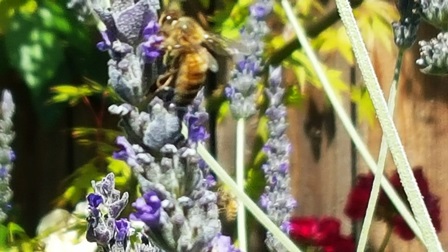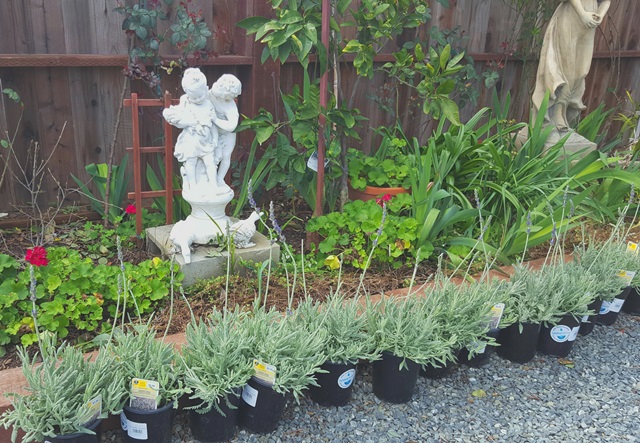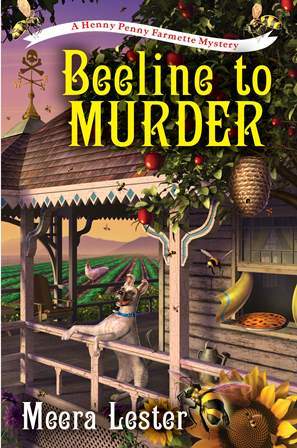Four Reasons to Buy Bare-Root Plants
Mid-February marks the beginning of bare-root season in the Bay Area. Growers ship roses, fruit trees, grapes, and berries in late January through February and March to local nurseries and DIY garden centers. By April, often sales of unsold bare-root plants begin. There are at least four good reasons to buy bare-root plants before spring officially arrives.
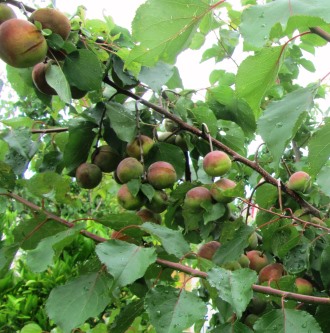
- When you buy bare-root trees, berries, grapes, and other plants in late winter (here in the Bay Area), you’ll pay less for them than you will if you wait until the start of spring. The purchase price increases later in the season. When the plants begin leafing out, nurseries will place unsold bare-root plants in pots. Potting an unsold plant involves extra labor as well as the costs for the pot, soil and amendments, mulch, and possibly stakes. Those costs are passed to the shopper.
2. It’s easy to place a bare-root tree right into your garden before its sap is flowing. When it is still “asleep,” it’s not as susceptible to cold and and won’t need as much water as it will when the weather is warm, the plant has leafed out, and the roots are growing and spreading.
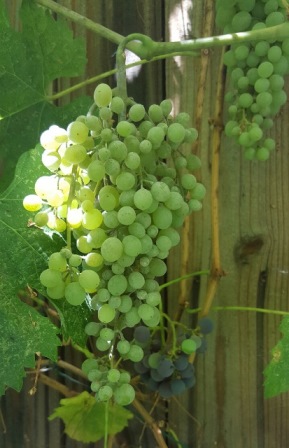
varieties of bare-root grapes.
3. Bare-root buys you time. If you are still planning your garden, you can “heal in” a bare-root plant until you are ready to put it in your garden. You just need to excavate a trench in which you temporarily place the bare-root plant. Mound soil over the roots and water. Let the plant rest until you prepare the permanent planting hole.
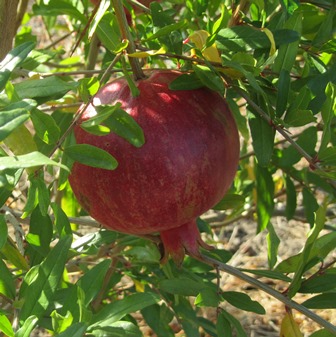
popular because they remain small and fruitful for years.
4. You have an opportunity you won’t get again to inspect the health of the root and its growth. With a bare-root plant, the roots can be examined for problems such as decay or damage. Using sharp pruning shears, you can cut away problem issues. When you buy an already potted plant, you won’t have this option.
Take a moment to visit your local plant seller, nursery, or DIY center to see what plants are available right now. Enjoy the season.
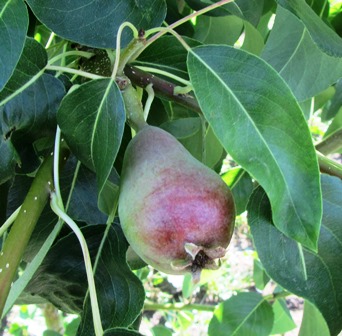
and after three years is producing dozens of late summer pears.
If you enjoy reading about country living topics, check out Meera Lester’s Henny Penny Farmette mystery series. Besides an entertaining mystery, each book includes delicious recipes, strategies for growing heirloom vegetables and fruits, and tips for keeping chickens and bees. These novels and her nonfiction self-help and wellness books are available online and everywhere books are sold.
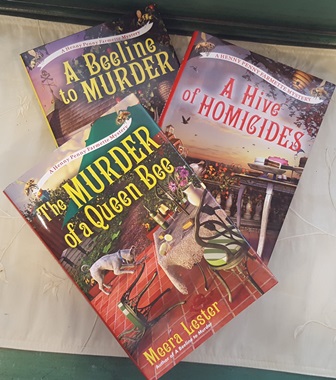
French Lavender–A Favorite of Pollinators
It’s bare-root season, a special time of the year for me. I like to visit local nurseries and check out the new offerings of heirloom roses, fruit trees, berries, herbs, and flowers. No matter which nursery I visit, I always seem to spot the lavender first.
After we moved to the Henny Penny Farmette, we put in lots of French lavender. But after a few years, the stalks have grown old and woody.
Recently, on a visit to a nearby nursery, we purchased twenty one-gallon plants of French Lavender, an upright perennial that we’ve discovered blooms almost all year long in our Bay Area climate.
Now, they are hardening off in my garden until I get around to planting them.
The word “dentata” means toothed and a closer examination of the foliage reveals fringed indentations.
This aromatic, shrub has been around for centuries. Valued for its ornamental and medicinal properties, it also is used for soil erosion control. Once established, the lavender is drought tolerant.
Many gardeners love this lavender for its gray-green leaves. When other flowering plants in the garden have finished their blooming cycle, this lavender keeps producing tall spikes of bright purple florets.
Not as brilliant in color as the English or Spanish lavender, the French lavender is lovely grouped together in a single area where its flower stalks can sway in the wind. Our honeybees and other pollinators love it.
* * *
If you are a fan of cozy mysteries and love farmette topics like gardening of heirloom vegetables, herbs, and fruits as well as keeping chickens and bees, check out my Henny Penny Farmette series of cozy mysteries from Kensington Publishing.
Besides a cozy mystery to solve, these books mix in delicious recipes, farming and gardening tips, facts about keeping bees and chickens, and morsels of farm wisdom.
- COMING SOON– Sept. 2017, the third novel in the Henny Penny Farmette series
 Facebook
Facebook Goodreads
Goodreads LinkedIn
LinkedIn Meera Lester
Meera Lester Twitter
Twitter




